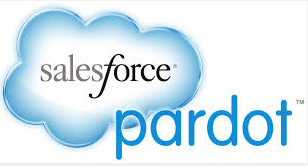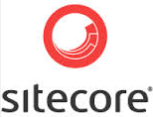SiriusDecisions: 2014 Marketing Automation Report
How much can a market really change in 12 months? In the marketing automation market, quite a lot! Over the past year, Salesforce.com and Adobe entered the market through acquisitions (ExactTarget/Pardot and Neolane, respectively), the percentage of B2B companies using marketing automation platforms increased, and marketing automation capabilities expanded beyond emails and registration forms. All of this means that when we drafted the 2014 version of our SiriusView: Marketing Automation Platforms, it involved more time, more effort and more spirited analyst debate than last year.
Last year, we surveyed 11 marketing automation platforms. This year, we surveyed 17 vendors and scored them across six categories. Below, I have listed each of the vendors we included and SiriusDecisions’ take on when they should be considered.
| Marketing Automation Platform | When to Consider |

|
Act-On may not meet the needs of global enterprises with multiple divisions and business units. But with core marketing automation, innovative tools for competitive benchmarking and one-click connectors to complementary applications, it appeals to small marketing teams willing to sacrifice advanced functionality for enhanced usability and fast deployment. For organizations with limited marketing resources that are comfortable with a self-service software model or for agencies that wish to offer marketing automation capabilities to their clients, Act-On should be on the short list of marketing automation platform providers to consider. |

|
Adobe Campaign offers considerable value for medium-size and large organizations that must integrate large amounts of prospect data from multiple databases and manage a distributed global marketing function. Lower-cost options may be equally viable for smaller organizations and those without highly standardized marketing processes, a dedicated marketing automation platform administrator or a need to integrate with more than one database. In addition, because Adobe Campaign is part of the Adobe Marketing Cloud, companies that use Adobe WCM can gain tighter alignment with their marketing automation platform. |

|
Organizations that require a marketing automation platform and also focus heavily on sales performance management should evaluate CallidusCloud Marketing Automation. Compared to other marketing automation platform vendors, CallidusCloud has an exceptionally strong focus on marketing automation for sales. However, large enterprises that require advanced program design and integration with third-party marketing and sales applications – and are not focused on sales performance management – may find a stronger fit with another marketing automation platform. |

|
For SMB organizations that utilize Dynamics and are considering a marketing automation platform solution with standard capabilities, ClickDimensions is a good choice, as integration is straightforward and the interface will be intuitive for Dynamics users. However, if the company does not use Microsoft Dynamics or is seeking advanced capabilities, ClickDimensions is not an applicable solution. |
|
|
For small and medium-sized organizations looking for a no-frills approach to marketing automation, eTrigue is worth considering. eTrigue may not meet the needs of global enterprises with multiple divisions and business units, but its 30-day free trial, included implementation and training costs, real-time reporting and new WYSIWYG template editor help make it a viable option for organizations looking to quickly get started with marketing automation. |

|
Geared to organizations with fewer than 200 employees, HubSpot offers a broad suite of demand creation tools. For small organizations seeking an all-in-one marketing solution with an emphasis on usability for common tasks, HubSpot is a compelling option. For organizations that have more than 200 employees, and/or those that seek deep marketing automation capabilities, other marketing automation platforms are likely to be a stronger fit. |

|
While many organizations are well served by a marketing automation platform that enables them to drive new demand through email marketing, tracking Web site activity and scoring leads, others seek broader feature sets including marketing resource management capabilities and capabilities for applying advanced statistical models. For the latter group, IBM EMM should be placed on the list of potential vendors. IBM EMM also should be considered by organizations where IBM products such as Cognos, SPSS, WebSphere Commerce and Coremetrics are currently installed. For organizations that are smaller in scale or do not wish to maintain a centralized marketing automation function with highly skilled resources, other marketing automation platform vendors are likely a better fit. |

|
The Marketo platform excels at aligning the activities of sales and marketing functions to a defined demand creation model, using differentiated toolsets, integrated applications, and cold-to-close analytics that measure performance throughout the demand waterfall. This makes Marketo a strong candidate for organizations considering marketing automation for the first time or switching to a solution with better usability and sales applications. With editions catering to the needs of small and medium-sized organizations, Marketo should be on the short list for all but the most complex scenarios. |

|
With its flexible pricing options, Net-Results offers substantial value for medium-sized organizations with limited marketing resources that are looking for core marketing automation. For agencies and solution partners that would like to white-label a marketing automation capability for their clients, Net-Results is a viable choice. For global enterprises with complex requirements (e.g. sophisticated reporting functionality, multi-language support, rich knowledge base resources), other marketing automation platform vendors are likely to provide a more suitable solution. |
| Large marketing teams with a sophisticated approach to demand creation should consider Oracle Eloqua for their marketing automation needs. For Oracle customers that are new to marketing automation or looking to switch vendors, Oracle Eloqua should definitely be on their short lists. Oracle Eloqua offers marketing teams a good deal of flexibility in terms of data and integration management. While Oracle Eloqua’s front-end user interface has drag-and-drop functionality and is intuitive for commonly executed activities, Oracle Eloqua may be too complex for smaller organizations, for whom cheaper options might make more sense. | |

|
For small and medium-sized Salesforce.com customers that are new to marketing automation or looking to switch vendors, Pardot should definitely be on the short list. Though Pardot might not meet the needs of global enterprises with multiple divisions and business units, it offers strong email marketing and lead management/nurturing capabilities along with an intuitive user interface. |

|
Right On Interactive (ROI) takes a distinct approach to marketing automation by focusing on lifecycle marketing. Organizations that are looking to use marketing automation throughout the customer lifecycle will benefit from ROI’s focus on end-to-end, prospect-to-customer engagement. However, because ROI has a less mature customer and partner base and a smaller internal staff than other marketing automation platform vendors, large enterprises – or companies with complex nurture programs and diverse requirements – may find a stronger fit with other marketing automation platforms. |

|
Silverpop is a strong contender with its robust email marketing, innovative support for mobile marketing, Web optimization conversion features, multi-channel nurturing and lead management basics. Given Silverpop’s strong email heritage, companies deploying a high volume of email and/or requiring advanced email capabilities should include Silverpop on their marketing automation platform short lists. Additionally, customers with strong security needs and those that store customer-sensitive data in their systems should consider Silverpop. |
|
|
Salesfusion may not meet the needs of global enterprises with multiple divisions and business units. However, with its templates, intuitive UI and social capabilities, it is an appealing option for small to medium-sized organizations that may be willing to exchange some advanced functionality for speed and value. |

|
Sitecore provides both Web content management (WCM) and marketing automation platform capabilities, which are sold as an integrated system. For companies looking for a standalone marketing automation platform solution, Sitecore may not be the best fit, as other vendors may offer more robust marketing automation platform capabilities. However, if the company currently uses Sitecore for WCM or if the organization is seeking both WCM and marketing automation platforms, Sitecore should be included on the short list of vendors. |

|
Teradata Campaign Management is a good fit for enterprises that require marketing automation to integrate multiple marketing data sources, and promote uniform marketing processes and reporting across multiple geographies and/or business units. It also should be considered by data-rich organizations that view the use of advanced analytics as a strategic differentiator. For a small marketing organization that lacks a centralized marketing operations function – or where MRM, advanced analytics and data management are low on the priority list – other marketing automation platforms will be a better fit. |

|
Organizations that have a strong channel focus and require a marketing automation platform to support channel demand programs would benefit from TreeHouse’s solution. However, although TreeHouse offers marketers several distinctive features (e.g. form management, content syndication, content asset reporting), large enterprises with advanced marketing needs that require implementation or continued support through partner services may want to consider other marketing automation platforms. |